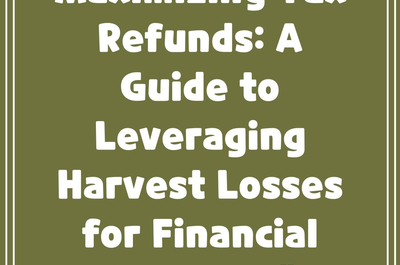
Hello, everyone! Today, we’re going to dive into a topic that’s been on everyone’s mind lately – the volatility in the U.S. stock market this year. Whether you’re an experienced investor or just getting started, understanding the causes behind market fluctuations can help you make informed decisions.
1. What is Volatility, and Why Does It Matter?
Volatility in the stock market simply refers to how much prices move up and down. If you see big swings in stock prices over a short period, that’s high volatility. This year, 2024, has seen particularly high volatility due to several factors. To give you an idea, the VIX, also known as the “fear index,” has spiked several times, surpassing 25 on multiple occasions (historically, a VIX level above 20 is considered a sign of heightened volatility). This shows that investors are more uncertain than usual about where the market is headed.
Volatility matters because it creates opportunities but also risks. On one hand, if you time the market right, you can buy stocks at lower prices during a dip and sell when prices recover. But on the other hand, you could suffer losses if the market moves against you.
2. What’s Driving Volatility in 2024?
Let’s break down the key drivers behind this year’s market turbulence.
a. Inflation and Interest Rates
Inflation remains a major concern in 2024. Despite the Fed’s aggressive interest rate hikes in 2023 to combat rising prices, inflation hasn’t completely settled down. For example, inflation is still hovering around 3.8% year-over-year, above the Fed’s target of 2%. Every time the Federal Reserve hints at further rate hikes, investors react. Higher rates make borrowing more expensive for companies, which can hurt profits. This, in turn, leads to lower stock prices.
b. Geopolitical Tensions
The ongoing global uncertainties, particularly in Eastern Europe and the Middle East, have also contributed to market fluctuations. Energy prices, for example, have been affected by conflicts, causing volatility in sectors like oil and gas. A barrel of crude oil surged above $95 in September 2024, compared to an average of around $75 earlier in the year. This rapid price increase affected not only energy stocks but also other sectors that rely on fuel costs, such as airlines and transportation.
c. Corporate Earnings and Recession Fears
Many companies have reported mixed earnings this year, with some sectors (like tech) showing strong profits, while others (like retail) are struggling. Investors are also worried about the possibility of a recession. Although the U.S. economy hasn’t officially entered a recession, growth is slowing. In Q2 2024, the U.S. GDP growth rate was 2.1%, down from 2.6% in the previous quarter. Slower growth means companies might not make as much money, leading to lower stock prices.
3. How Can Investors Respond?
Now that we know what’s causing the volatility, let’s talk about how investors can respond.
a. Diversify Your Portfolio
Diversification is one of the most important strategies in times of uncertainty. By spreading your investments across different sectors (like tech, energy, and healthcare) and asset types (like stocks, bonds, and real estate), you can reduce risk. For example, while tech stocks might be facing volatility due to interest rates, energy stocks could benefit from rising oil prices.
b. Consider Defensive Stocks
Defensive stocks, like those in the utilities, healthcare, and consumer staples sectors, tend to be less affected by economic downturns. These are companies that sell products people need, no matter what’s happening in the economy. In 2024, some of the best-performing defensive stocks have seen gains of 10-12% compared to the broader market’s more modest 4-5% increase.
c. Stay Informed but Avoid Emotional Decisions
It’s important to keep up with the news, but don’t let emotions drive your decisions. Reacting impulsively to market news can often lead to mistakes. Instead, focus on your long-term strategy. Remember, if you’re investing for the long term, short-term volatility shouldn’t cause you to panic.
Conclusion
To wrap things up, the stock market in 2024 is certainly a wild ride, with inflation, interest rates, and geopolitical tensions leading the way in driving volatility. But as we discussed, this volatility also presents opportunities if you’re well-prepared. Diversifying your portfolio, investing in defensive stocks, and staying informed without overreacting are key strategies to navigate these uncertain times. Remember, volatility is part of the market, but with the right approach, you can turn it into an advantage.
Thank you for joining me today, and I hope you feel more confident about tackling the challenges of today’s stock market. Keep investing wisely, and I’ll see you in the next post!



